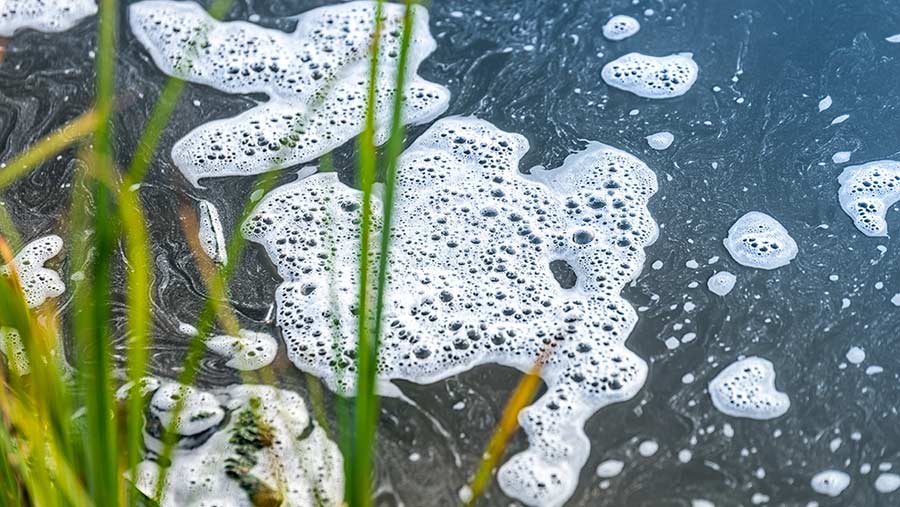New proposals to curb farm river pollution in England
 © Adobe Stock
© Adobe Stock A new report warning that public health and nature are under threat from a “chemical cocktail” of sewage, slurry and plastic in English rivers has proposed stronger action to tackle pollution from farming.
MPs on the House of Commons Environmental Audit Committee (EAC) have concluded that poor water quality in English rivers is a “result of chronic underinvestment and multiple failures in monitoring, governance and enforcement”.
See also: Phosphate issues cause long delays for farm planning applications
The report says intensive poultry and livestock farming is putting “enormous pressure” on particular catchments, such as that flowing into the River Wye, as it may be raising the river’s phosphorus levels.
Farmers in Herefordshire are already taking steps to reduce phosphate levels in the River Wye and bring the catchment back into balance, having recognised the scale of the problem and the considerable changes required.
Nutrient budgets
The EAC has proposed that each of the major river catchments in England should have a “nutrient budget” calculated, and pollution from all sources in the catchment must then be reduced to fall in line with the capacity of the river to handle the nutrients.
The report suggests that new poultry farms should not be granted planning permission in catchments exceeding their nutrient budgets, and that planning permission “seems to be granted for individual units without any cumulative assessment being made of the overall impact of all the intensive farms in the area”.
Industry reaction
Thomas Wornham, a Hertfordshire poultry farmer and NFU National Poultry Board chairman, said everybody in agriculture wanted to improve the natural environment.
He told Farmers Weekly: “I think we can argue our case that what we produce can be managed in such a way it doesn’t have to impact the environment, but it does need the farmer to be engaged and want to change the way they are using their by-products.
“I would suggest poultry farming, per se, doesn’t cause a problem for water. It is the way the by-products of poultry are being used.
“The use of poultry litter needs to be challenged and improved. That could be exporting to another part of the country where there might be low organic matter. But there are cost and logistical implications for that.”
Mr Wornham added: “I can understand the principles of saying the poultry farm creates a problem so don’t grant planning, but when I applied for my permission the way I looked at it was anything I brought onto the farm, I kept on the farm. For example, water storage for washdown and storage for litter.
“Other than ammonium which is really challenging to keep within the boundary of your property, if a poultry farm is designed properly all the waste will be contained within that unit, and then you have options to use the litter, for example, for heating and power or move it off farm.”
The British Survey of Fertiliser Practice shows nutrient applications of nitrogen and phosphate, as well as soil nutrient balances, have fallen massively over the past few decades.
Nitrogen and phosphate use in England and Wales have fallen by 33% and 61%, respectively, since 1990.
